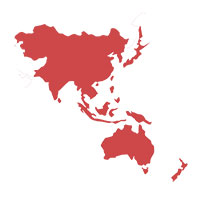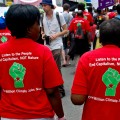Combet’s Chance to Change the Climate
Lauren Jones | December 8, 2010.
The announcement that Australian Minister for Climate Change Greg Combet will facilitate, along with Bangladesh, discussions between nations on climate change finance seems a recognition of Australia’s growing diplomatic role on the world stage.

Photo // The Age
On the other hand, the appointment risks shining an unfavourable light on the Australian government’s approach to international climate finance, especially the Rudd/Gillard government’s clever accounting that saw us cheat our financing obligations contained in the Copenhagen Accord.
Nicknamed “double-dipping”, in 2010/11 Federal Budget the Government counted climate aid – money committed in Copenhagen as a result the same negotiations Mr Combet is now leading – as part of our Official Development Assistance (ODA). What this means is money allocated to assist developing countries adapt to climate change was counted as part of the foreign aid budget, even though we agreed to provide new and additional funding to fight climate change.
Australia is basically pretending to honour both our climate and aid contribution while in reality cheating both. The government ardently maintains that they increased the aid budget by $500 million in real dollars, but, by double counting the aid and climate financing, $350 million of this increase will go to fight climate change in 2011.
This is real money. According to the well-respected Global Fund to Fight HIV/AIDS, Malaria and Tuberculosis it costs $173 to provide a tuberculosis patient with treatment for a year. On this basis, we could be treating an additional 2 million people a year for this killer disease with money we will instead use for green power.
With particular relevance to the ongoing talks in Cancun, we are bound under international law to separate climate financing from ODA. This obligation is found in the United Nations Framework Convention on Climate Change and the Kyoto Protocol and failure to separate the two funding streams causes a clear reduction in the impact of Australia’s aid in preventing suffering.
Indeed, a recent study by the Overseas Development Institute highlighted the material consequences of our current financing model,
“If part of aid was diverted to finance adaptation activities this would have sectoral and geographical implications for how aid was distributed leading to less aid flows to Africa and lower aid flows to sectors such as education, health or aid for trade thereby putting development efforts in jeopardy.”
Double counting aid and climate money is not good enough and as Australians we need to demand more from our government. Does Combet and his colleagues think that poor countries won’t do the math? It is quite obviously an act of bad faith to withdraw education and health funding to countries such as East Timor and Papua New Guinea, and give back the same money rebadged as ‘climate assistance’.
To effectively facilitate a climate finance solution in Mexico the Australian government must prove that it acts on a global stage to prevent unnecessary suffering. We are in one of the best economic positions after the Global Financial Crisis with the money to fulfill both our commitment to 0.7 per cent of GDP to the Millennium Development Goals and our pledge to climate change mitigation. In light of this, clever accounting just seems petty.
Money for climate financing is important and when it is spent effectively it will save lives. By double dipping we cheat the world’s poor and undermine international climate negotiations. If Greg Combat is serious about Australia playing a leading role in Cancun he needs to repeal this policy blunder.
By Lauren Jones, top photo by Laura Owsianka.












comment